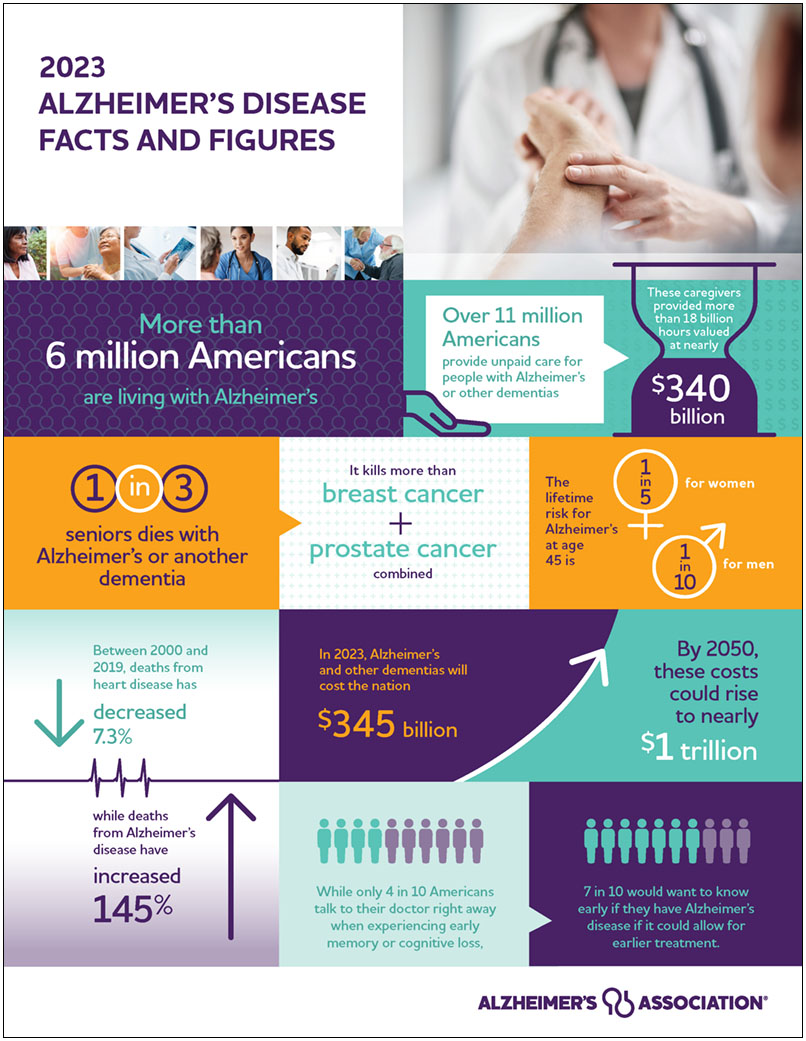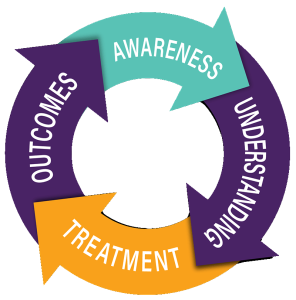With June being Alzheimer’s & Brain Awareness Month, more citizens in our community should hear the facts about prevalence and preventative pursuits.
What is the estimated number of Americans…
- Living with Alzheimer’s? 6 million.
- Providing unpaid care for people with Alzheimer’s or other dementias? 11 million.
By analogy, while coronary artery disease relates to heart function, Alzheimer’s disease concerns brain function. When nerve cells are damaged, it harms brain neurons crucial to thinking, talking, walking and all human capacities.
Are you unsure how to distinguish between dementia and Alzheimer’s disease?
- Dementia refers to characteristic symptoms, including challenges with language, memory, problem-solving and abilities to take care of activities of daily living.
- Alzheimer’s disease is a primary cause (60-80%) of dementia cases, with chronic changes that degrade brain neuron functionality.
To assess dementia’s societal impact, these Facts & Figures from the Alzheimer’s Association ® speak volumes.

Does someone in your circle of life have memory difficulties and appear apathetic, depressed or confused?
Do their behavioral changes on basic tasks reveal poor judgment?
Research studies make known that proactively managing Alzheimer’s disease can improve quality of life for affected individuals and caregivers struggling to assist with daily needs, medical complications, and emotional stress.
As a highly respected medical journal states, “Acting now on dementia prevention, intervention and care will vastly improve living and dying for individuals with dementia and their families, and in doing so, will transform the future for our society. Overall, about 80% of dementias are in people aged 75 years and older, while the number of people with this condition is expected to increase to 66 million by 2030 and 131 million by 2050, driven by rising numbers of older adults.”
1 The Lancet study indicated hearing loss is one of the most important modifiable risk factors, along with related medical conditions and lifestyle issues such as diabetes, hypertension, smoking, social isolation, and depression. Evidence shows social isolation may be a risk factor for dementia, indicating the essential role of communication wellness in quality of life.
In recognizing dementia’s epidemic proportion, debilitating impacts, economic costs, and proactive treatment options, it is imperative we promote positive cycles of community education and engagement.
We aim for you and your loved ones to be in the know.

Each of us can Join the Fight with the Alzheimer’s Association, this June and beyond, to boost…
- Awareness that “Worldwide, more than 55 million people are living with Alzheimer’s or another dementia.
- Understanding that dual sensory impairment (DSI) increases risks
- Treatment goals which ensure best vision and hearing abilities
- Outcomes that enhance sensory abilities, brain health and quality of life
Amplify impact by advising loved ones to take care of their ears and not wait years. Learn why consistent auditory (sound) stimulus is healthy exercise for your brain. In fact, Ear to Brain is A Vital Domain™.
By seeing us for periodic evaluations, we can accurately diagnose your current hearing status and provide personalized solutions which empower you to hear your best, socialize in pleasurable ways and promote mental resilience. Spring forward, schedule your appointment and be Happy to Hear!
1 The Lancet DOI:https://doi.org/10.1016/S0140-6736(17)31363-6







